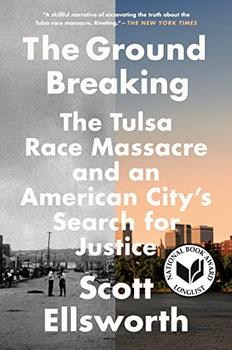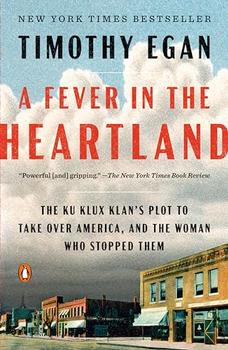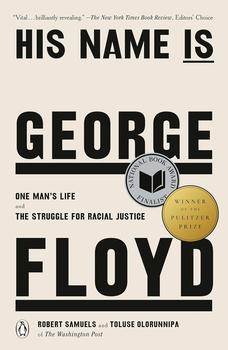Summary | Excerpt | Reviews | Beyond the book | Read-Alikes | Genres & Themes | Author Bio

An American City and Its Search for Justice
by Scott EllsworthMore than one-thousand homes and businesses. Restaurants and movie theaters, churches and doctors' offices, a hospital, a public library, a post office. Looted, burned, and bombed from the air.
Over the course of less than twenty-four hours in the spring of 1921, Tulsa's infamous "Black Wall Street" was wiped off the map—and erased from the history books. Official records were disappeared, researchers were threatened, and the worst single incident of racial violence in American history was kept hidden for more than fifty years. But there were some secrets that would not die.
A riveting and essential new book, The Ground Breaking not only tells the long-suppressed story of the notorious Tulsa Race Massacre. It also unearths the lost history of how the massacre was covered up, and of the courageous individuals who fought to keep the story alive. Most importantly, it recounts the ongoing archaeological saga and the search for the unmarked graves of the victims of the massacre, and of the fight to win restitution for the survivors and their families.
Both a forgotten chronicle from the nation's past, and a story ripped from today's headlines, The Ground Breaking is a page-turning reflection on how we, as Americans, must wrestle with the parts of our history that have been buried for far too long.
Overall, this is an engaging and well-researched work about the long-term impact of the Tulsa Race Massacre. Given that much of the primary information disappeared over the years, it is remarkable how much Ellsworth found. The subject matter can be difficult to study, especially for those who grew up in and have a deep association with Tulsa, like the author, but it is important to learn and remember what happened not only over those two days in 1921, but in the years afterward...continued
Full Review
(736 words)
This review is available to non-members for a limited time. For full access,
become a member today.
(Reviewed by Scott C. Martin).
 In The Ground Breaking, Scott Ellsworth notes that for many Americans, the first exposure they received to the events of 1921 in Tulsa came from a dramatic portrayal on an episode of the HBO series Watchmen that aired October 20, 2019. The show received credit for spurring a renewed interest in the Tulsa Race Massacre in the lead up to the 100th anniversary of the event in 2021.
In The Ground Breaking, Scott Ellsworth notes that for many Americans, the first exposure they received to the events of 1921 in Tulsa came from a dramatic portrayal on an episode of the HBO series Watchmen that aired October 20, 2019. The show received credit for spurring a renewed interest in the Tulsa Race Massacre in the lead up to the 100th anniversary of the event in 2021.
That many Americans did not know about the Tulsa Race Massacre is not surprising. While it dominated world headlines in the immediate aftermath, the story of the sacking of Greenwood and the victims (estimates vary, but it is believed that 75-300 were killed and around 200 more injured) quickly faded from the news. While many major events have generated more ...
This "beyond the book" feature is available to non-members for a limited time. Join today for full access.

If you liked The Ground Breaking, try these:

by Timothy Egan
Published 2024
A historical thriller by the Pulitzer and National Book Award-winning author that tells the riveting story of the Klan's rise to power in the 1920s, the cunning con man who drove that rise, and the woman who stopped them.

by Robert Samuels, Toluse Olorunnipa
Published 2024
A landmark biography by two prizewinning Washington Post reporters that reveals how systemic racism shaped George Floyd's life and legacy - from his family's roots in the tobacco fields of North Carolina, to ongoing inequality in housing, education, health care, criminal justice, and policing - telling the singular story of how one man's tragic ...
Heaven has no rage like love to hatred turned, Nor hell a fury like a woman scorned.
Click Here to find out who said this, as well as discovering other famous literary quotes!